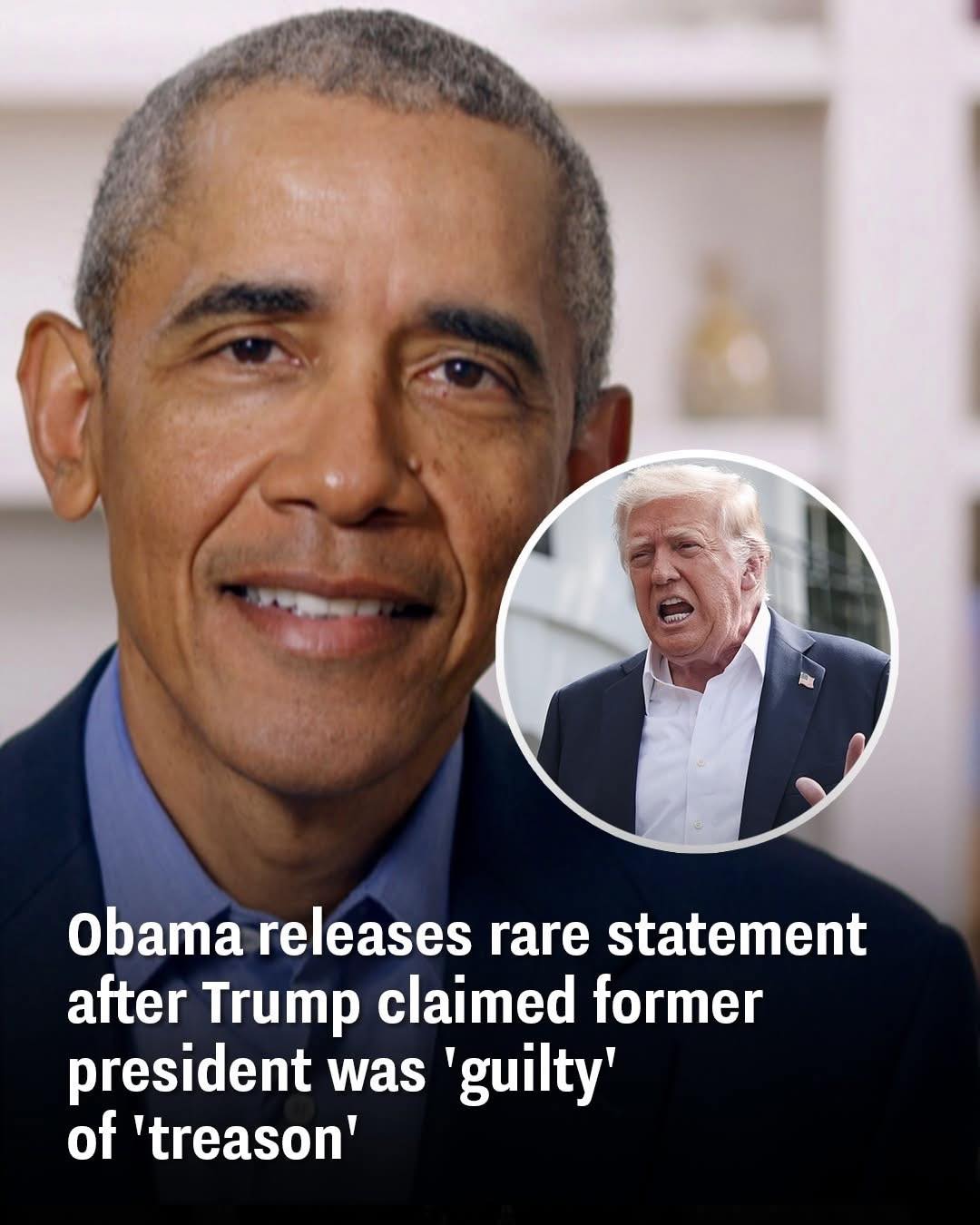In a rare public statement, former President Barack Obama has responded to a serious accusation made by current President Donald Trump, who claimed Obama was “guilty of treason” for allegedly attempting to undermine the outcome of the 2016 presidential election.
The allegation came during an impromptu press gathering in the Oval Office on July 22, where Trump doubled down on long-standing claims that his predecessor sought to discredit his victory over Hillary Clinton by weaponizing intelligence agencies.
“It’s there. He’s guilty,” Trump said. “This was treason. They tried to steal the election, they tried to obfuscate the election. They did things nobody’s ever imagined, even in other countries.”
President Trump’s accusation centers around the Obama administration’s handling of intelligence reports about Russian interference in the 2016 election. While U.S. intelligence agencies concluded that Russia had indeed attempted to influence the outcome of the election—primarily to benefit Trump—they also found no evidence that the interference altered any actual vote counts.
Nevertheless, Trump has repeatedly framed the investigation into Russian meddling as a politically motivated attack and has often placed blame on top officials in the Obama administration, including Obama himself.
Adding fuel to the controversy, Director of National Intelligence Tulsi Gabbard recently released a statement accusing the Obama administration of engaging in a “treasonous conspiracy,” and suggested that former Obama officials could face legal scrutiny. Gabbard, once a Democratic Congresswoman and 2020 presidential candidate, now holds a top position in the Trump administration.
In response, Obama’s communications director Patrick Rodenbush issued a statement dismissing the allegations as baseless and inflammatory.
“Out of respect for the office of the presidency, our office does not normally dignify the constant nonsense and misinformation flowing out of this White House with a response,” said Rodenbush. “But these claims are outrageous enough to merit one.”
He continued: “These bizarre allegations are ridiculous and a weak attempt at distraction.”
Rodenbush also pointed to the findings of a bipartisan Senate Intelligence Committee report released in 2020, which confirmed that Russian operatives did attempt to interfere in the 2016 election and did so in a way that largely benefited the Trump campaign. The report notably found that Trump campaign chairman Paul Manafort had shared internal polling data with Russian operatives and had ties to pro-Kremlin actors.
“Nothing in the document issued last week undercuts the widely accepted conclusion that Russia worked to influence the 2016 presidential election but did not successfully manipulate any votes,” Rodenbush added.
This latest war of words marks a rare moment of direct engagement between Obama and Trump, two presidents who have remained visibly distant since the power transition. Though Obama has largely avoided commenting on Trump’s presidency, he has occasionally weighed in on issues of democracy, misinformation, and institutional integrity.
The renewed friction comes at a time when President Trump is navigating growing pressure from both supporters and critics over recent decisions, including the administration’s abrupt handling of the long-awaited Epstein documents. U.S. Attorney General Pam Bondi’s declaration earlier this month that no additional Epstein client files would be released contradicted her earlier promises of transparency. The reversal sparked division within conservative circles, with some prominent voices expressing frustration at what they see as a betrayal of accountability.
That discontent reached a boiling point during the recent Student Action Summit hosted by Turning Point USA, where many attendees voiced concern over the Epstein investigation and its implications for transparency in government.
Meanwhile, with campaign season heating up, Trump’s statements and accusations—whether aimed at political opponents or predecessors—are once again dominating headlines. As always, the weight of such claims raises concerns about the politicization of national intelligence and the dangers of undermining public trust in American institutions.
